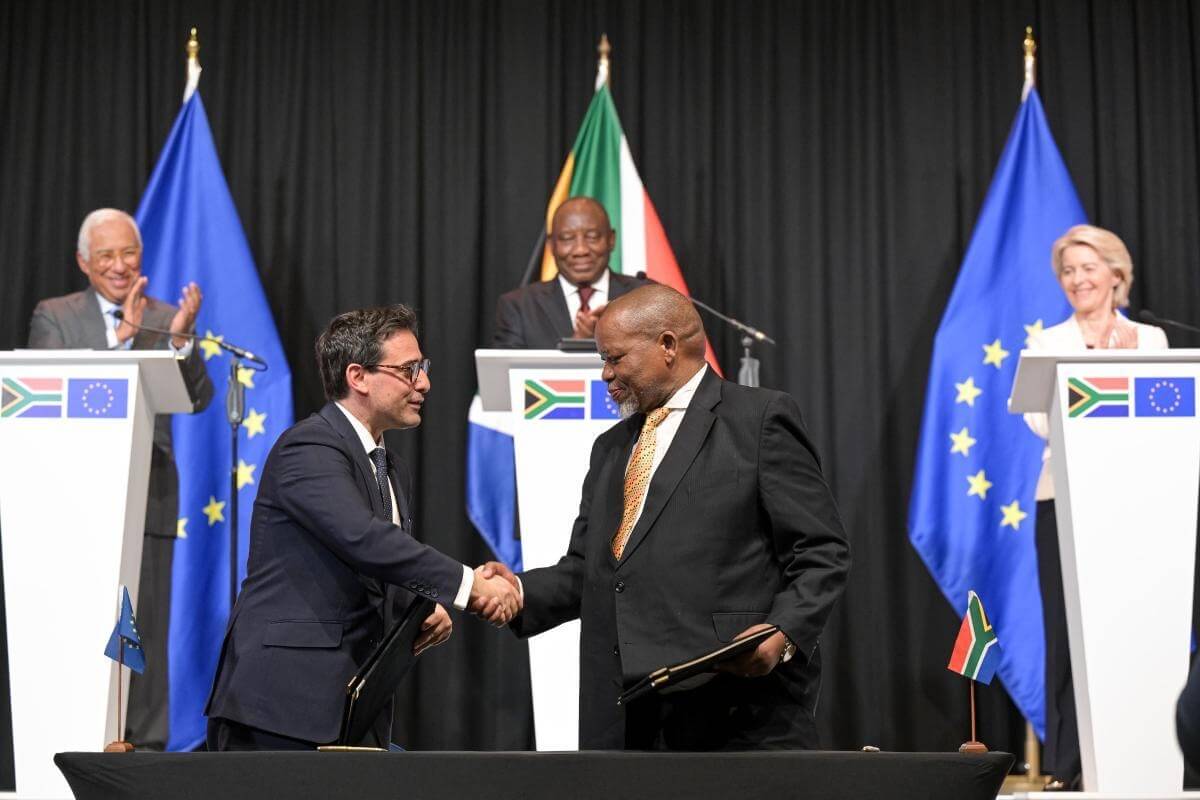The seventh summit of the African Union (AU) and the European Union (EU), taking place from 24 to 25 November in Luanda, the capital of Angola, presents a different picture of the relationship between Africa and Europe compared to previous years.
Rather than confirming the current pace of cooperation, the summit demonstrates that Africa is entering the talks with much greater political confidence.
It no longer wishes to accept pre-formulated European offers but seeks to influence the rules governing financial flows, trade, and investment.
The real significance of this meeting lies precisely in the negotiations that are not a formal part of the agenda.
Europe comes to Luanda with practical interests: it needs African minerals for the energy transition, more stable access to African markets, and agreements to secure labour in sectors experiencing shortages.
The problem is that it can no longer demand these from the position it held in previous decades, as Africa now has more partners, more choices, and greater negotiating power.
The African position was led this time by the President of Angola and current Chairman of the African Union, João Lourenço.
In his opening address, he stated that the current financial framework is not working, as countries seeking to attract investment are simultaneously stifled by growing debt.
He argued that Africa needs an entirely new kind of dialogue with international financial institutions.
As an example, he cited the 'Common Framework' mechanism initiated by G20 members, which in practice has failed to provide speed or clarity in negotiations for countries such as Ghana and Zambia.
The core of the disagreement
Underlying all this is a change that has long been underestimated. Many African countries today are experiencing more stable and faster growth than most developing countries, and the continent's demographics make it one of the few regions with real long-term potential.
Europe enters this process burdened by slow recovery, weaker industrial dynamics, and the consequences of the war in Ukraine.
Europe can no longer take its influence for granted or assume that African states will automatically accept its proposals
Therefore, Europe can no longer take its influence for granted or assume that African states will automatically accept its proposals.
Three areas, which diplomatic communications have so far downplayed, clearly reveal the core of the disagreement.
The issue of debt has become the most sensitive, as African governments openly state that current models do not resolve the problem but merely postpone it.
Restructuring under the frameworks of the IMF, the World Bank, and the G20's 'Common Framework' is seen more as a prolonged regime of control than a path to stability, as demonstrated by the cases of Ghana and Zambia.
Additionally, African countries seek to change the dynamics of resource trade: they no longer accept the role of raw material exporters whose resources gain real value elsewhere, especially regarding minerals crucial to the energy transition.
The third area of tension concerns migration. Europe wants predictable labour arrival programmes and legal channels for young African workers, while African countries insist that such arrangements must be mutually beneficial and not undermine their own institutions.
Therefore, African governments stress that any such programme must be accompanied by investments in education, health systems, and local administrations, as the departure of young professionals without compensation leaves a gap that their countries cannot easily fill.
New rules of cooperation
The summit in Luanda raises the question of whether relations between Africa and Europe can move from the current model to one with real political and economic significance.
African governments are adamant about rejecting offers that do not stem from their collaborative efforts.
They strive for agreements that align with the interests of both continents and establish more equitable financial and trade arrangements.
 Europe must accept that the era of unilateral offers is over and that the partnership can only continue if both parties benefit
Europe must accept that the era of unilateral offers is over and that the partnership can only continue if both parties benefit
If the summit results in agreement on new rules of cooperation, it would change the way Africa and Europe engage in economic and financial relations.
Africa would gain the space to manage most of its own resources, develop industries domestically, and attract investment under conditions that strengthen its economies in the long term.
Europe must also accept that the era of unilateral offers is over and that the partnership can only continue if both parties benefit.
However, without concrete mechanisms – from clear debt relief tools to raw material processing projects in Africa to predictable investment flows – this summit will be remembered as one that raised high expectations but delivered little.
Luanda clearly demonstrates that Africa is no longer a supplementary area of European policy but a factor influencing capital flows, trade, and energy plans far more widely than Europe is willing to acknowledge.
Europe must acknowledge that unilateral rule-writing is no longer the basis for a stable partnership.
Africa seeks the space to manage its own development and will not accept models that have perpetuated dependency for years.
Therefore, the key issue in Luanda is entirely practical: either the two sides align their interests through mechanisms that work in the real world, or Africa will deepen cooperation with those who already offer such opportunities.